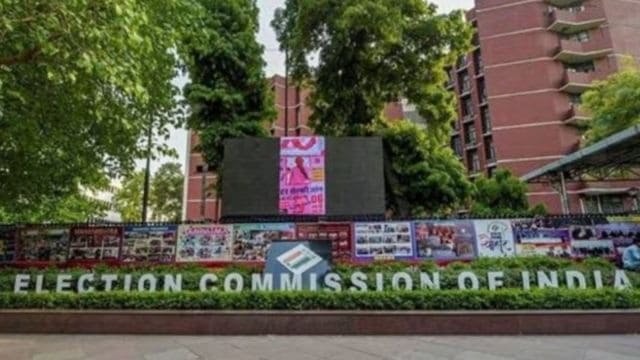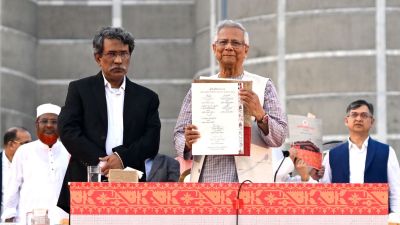When the Election Commission announced its decision to conduct a Special Intensive Revision (SIR) of the electoral rolls of the country – starting with Bihar on June 24 – it listed the “inclusion of the names of foreign illegal immigrants” as one of the reasons behind the move.
But, in 2024, the commission told a Parliamentary standing committee that the existing legal provisions were enough to keep non-citizens from enrolling as electors.

The Parliamentary Standing Committee on Personnel, Public Grievances, Law and Justice had in its report on August 4, 2023 recommended that the EC come up with a legal mechanism to ensure that non-citizens with Aadhaar do not end up linking their Aadhaar and Voter IDs.
Story continues below this ad
After an amendment to the election laws in 2021, EC began collecting Aadhaar numbers of electors in order to link with the Elector’s Photo Identity Card (EPIC) in 2022, on a voluntary basis.
In the 2023 report, the committee had expressed concerns over “linking of Aadhaar with EPIC of non-citizens”, leading it to “suggest that the ECI should establish a legal provision or an alternative mechanism to ensure that non-citizens with Aadhaar are not included in the voter list.”
On Friday, the committee, which is chaired by BJP Rajya Sabha MP Brij Lal, presented its report on the actions taken by the Law Ministry and ECI on its 2023 report. The report recorded the EC’s reply to the 2023 recommendation.
Replying to the committee on January 17, 2024, the EC said: “As per Section 16 of RP Act, 1950 a noncitizen is disqualified for registration in an electoral roll. Therefore, a non-citizen is not allowed to enroll even if he possesses an Aadhaar card. Aadhaar is not a citizenship document. Further, under Section 31 of the RP Act, 1950 making false declaration in connection with the preparation, revision or correction of an electoral roll or the inclusion or exclusion of any entry in or from an electoral roll is a punishable offence with imprisonment for a term which may extend to one year, or with fine or both. Hence, there is already legal provision available in the present election law to prevent a non-citizen from enrolment.”
Story continues below this ad
Satisfied with the response, the committee did not reiterate the recommendation.
Meanwhile, the committee reiterated some of its other recommendations that were not accepted by the government so far, including lowering the age limit for contesting elections to 21 years. “…the feasibility of a phased or limited reduction in the minimum age, such as lowering it to 21 years, may be explored through a structured impact study to assess potential implications and benefits,” the committee recommended.
The committee also reiterated its recommendation that the penalty for a candidate for filing a false affidavit be enhanced from the current punishment of six months’ imprisonment, as per Section 125A of the Representation of the People Act, 1951. In its reply, the government had said that the issue was “under examination”.
“The Committee strongly emphasises that filing false affidavits undermines the sanctity of the electoral process and deceives voters, which should be treated as a grave electoral offence. Mere acknowledgement that the matter is under examination, without any definite timeline or indication of progress will not solve the problems,” it said.









